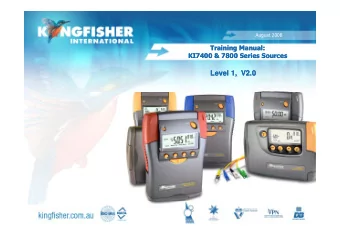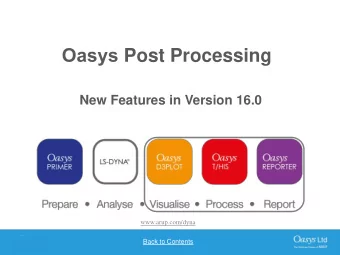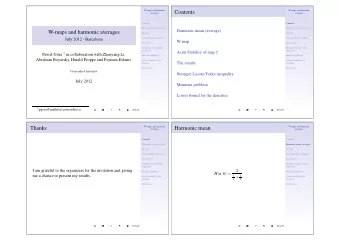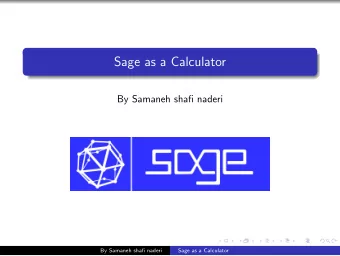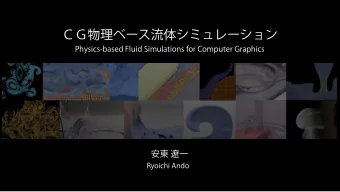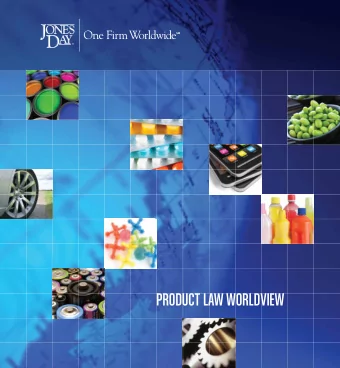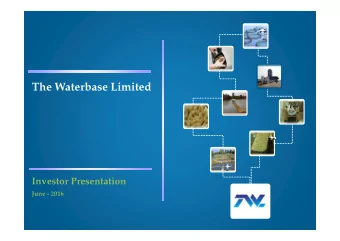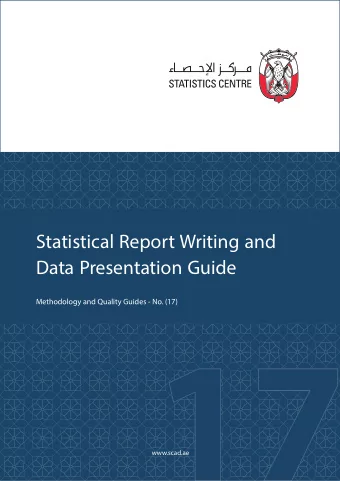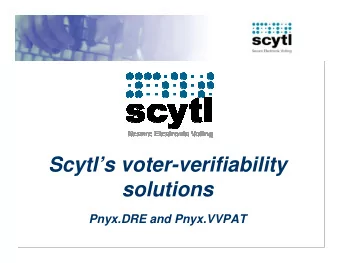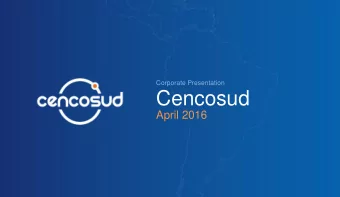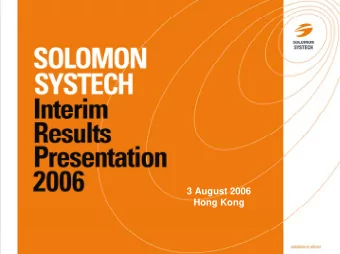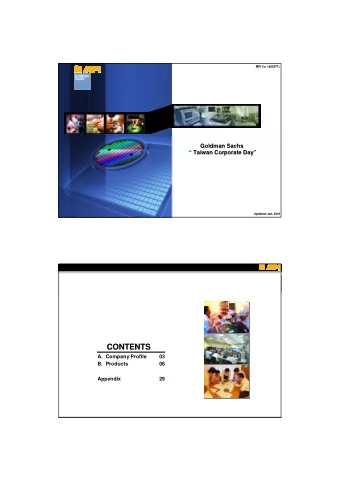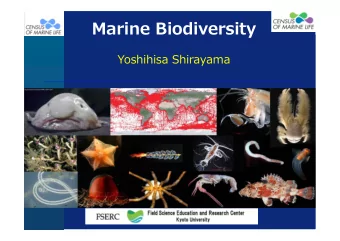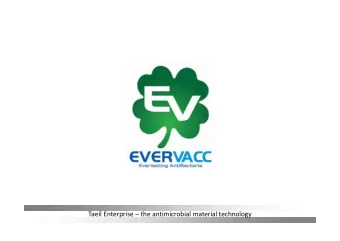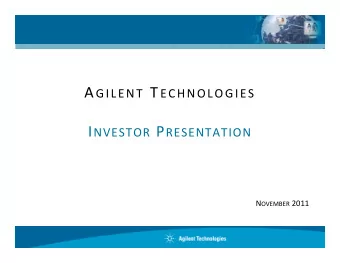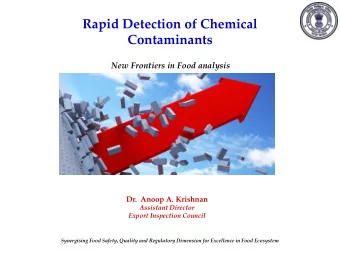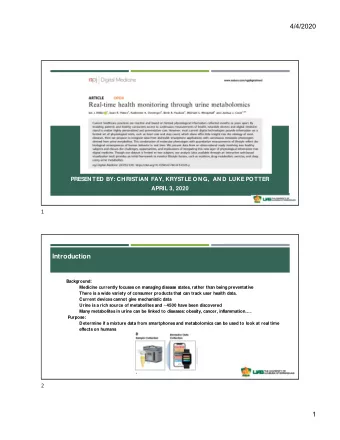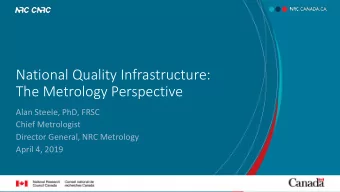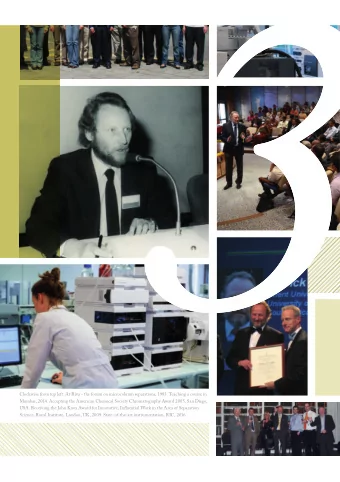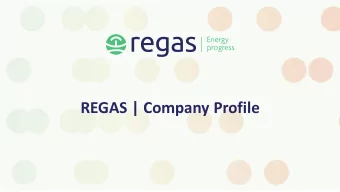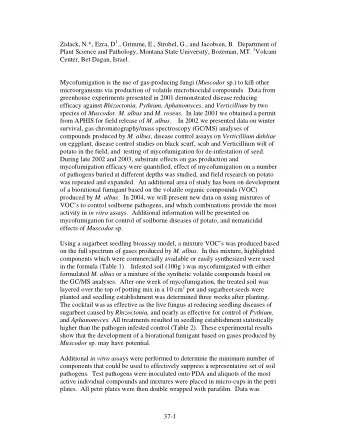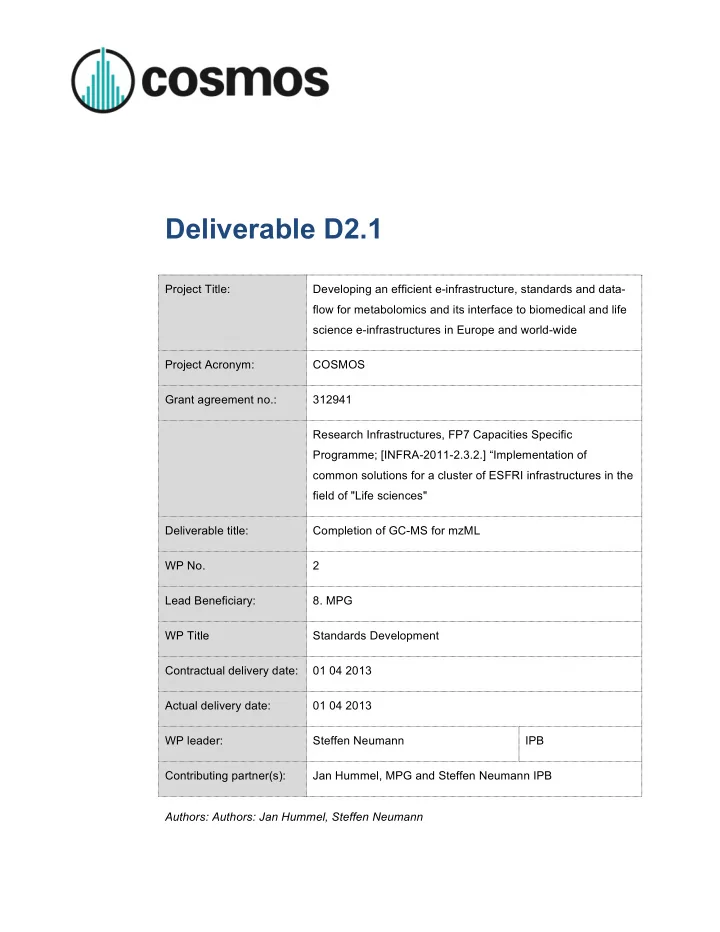
Contents 1 - PDF document
Deliverable D2.1 Project Title: Developing an efficient e-infrastructure, standards and data- flow for metabolomics and its interface to biomedical and life science e-infrastructures in Europe and world-wide Project Acronym: COSMOS Grant
Deliverable D2.1 Project Title: Developing an efficient e-infrastructure, standards and data- flow for metabolomics and its interface to biomedical and life science e-infrastructures in Europe and world-wide Project Acronym: COSMOS Grant agreement no.: 312941 Research Infrastructures, FP7 Capacities Specific Programme; [INFRA-2011-2.3.2.] “Implementation of common solutions for a cluster of ESFRI infrastructures in the field of "Life sciences" Deliverable title: Completion of GC-MS for mzML WP No. 2 Lead Beneficiary: 8. MPG WP Title Standards Development Contractual delivery date: 01 04 2013 Actual delivery date: 01 04 2013 WP leader: Steffen Neumann IPB Contributing partner(s): Jan Hummel, MPG and Steffen Neumann IPB Authors: Authors: Jan Hummel, Steffen Neumann
2 | 12 Contents 1 ¡ ....................................................................................................... 3 ¡ Executive summary 2 ¡ .......................................................................................................... 3 ¡ Project objectives 3 ¡ Detailed report on the deliverable ................................................................................. 3 ¡ 3.1 ¡ Background ............................................................................................................ 3 ¡ 3.2 ¡ Description of Work ................................................................................................ 4 ¡ 3.2.1 Collection of a diverse set of GC-MS data files “in the wild” ............................... 4 ¡ .................................. 4 ¡ 3.2.2 Possible paths to generate mzML data from GC-MS data 3.3 ¡ Next steps .............................................................................................................. 7 ¡ 4 ¡ ................................................................................................................... 7 ¡ Publications 5 ¡ ................................................................................................... 7 ¡ Delivery and schedule 6 ¡ Adjustments made ........................................................................................................ 7 ¡ 7 ¡ Efforts for this deliverable ............................................................................................. 7 ¡ .......................................................................................................................... 8 ¡ Appendices Background information ...................................................................................................... 8 ¡ COSMOS Deliverable D2.1
3 | 12 1 Executive summary Today, most GC-MS data is available either in non-open vendor formats or netCDF. Although netCDF is an open format, it cannot capture for all emerging hyphenated and combinatorial experiment setups, in particular advanced GC-MS experiments, such as Tandem-MS. The aim of this deliverable is to identify and address the limitations, which have so far slowed down the mzML adoption in metabolomics. 2 Project objectives With this deliverable, the project has reached or the deliverable has contributed to the following objectives: No. Objective Yes No 1 We will work with the PSI to extend existing exchange standards to X technologies used in metabolomics, e.g. gas chromatography 3 Detailed report on the deliverable 3.1 Background The Proteomics Standards initiative (PSI) has developed a number of XML based data exchange standards. The mzML standard can encode mass spectrometry (MS) raw data, and is widely in use in LC-MS based proteomics, and also increasingly in LC-MS based metabolomics. COSMOS Deliverable D2.1
4 | 12 However, in GC-MS based metabolomics experiments, data is so far often available as either a closed vendor format or as netCDF (also referred to as ANDIMS), which provides few metadata about the acquisition parameters, and which is unable to capture advanced mass spectrometric experiments such as tandem-MS, which is becoming increasingly popular. We have thus set out to augment the existing mzML and especially the underlying PSI-MS ontology of controlled vocabulary with terms and concepts required to capture GC-MS based metabolomics experiments, and to further the adoption on both the data producing side and the data processing software and projects 3.2 Description of Work 3.2.1 Collection of a diverse set of GC-MS data files “in the wild” We have collected a range of GC-MS example data files from both the COSMOS project partners and external contributors. The collected data formats range from vendor files, netCDF to several mzXML and only few mzML files, and have been made available at http://sourceforge.net/projects/cosmos-fp7/. The aim was to provide a broad range of data and Use Cases that need to be covered by the mzML standard before adoption can be recommended. 3.2.2 Possible paths to generate mzML data from GC-MS data Because mzML is not yet prevalent in the GC-MS based metabolomics world, there is little knowledge in the community how mzML files can be created. We collected the following possibilities: ⎯ Agilent : For data in the vendor’s MassHunter format, a conversion to mzML is possible with the open source proteowizard (pwiz) software ⎯ LECO : the newest version of the vendor software can export mzML. Currently, this software version is not yet common among users. Pwiz is currently not able to convert LECO data, and the company has currently no plans to develop a standalone converter. COSMOS Deliverable D2.1
5 | 12 ⎯ Bruker : The company offers several GC-APCI-TOF/MS based instruments. The raw data can readily be converted with both the vendor’s CompassXport tool and the pwiz converter. ⎯ Waters : Data from e.g. the GCT premier can be converted with the pwiz converter. ⎯ Thermo : Data from e.g. the Trace-GC can be converted with the pwiz converter In some cases the metadata such as acquisition parameters do not exceed that contained in netCDF files. 3.2.3 Identification of existing and missing PSI-MS ontology concepts applicable to GC-MS mzML data, and submission of new ontology concepts to PSI-MS The mzML data standard uses controlled vocabulary terms from the PSI-MS ontology for specific information to keep the structure of the mzML format stable. We have created and submitted a number of concepts and terms to the PSI-MS ontology working group in the required OBO ontology format which are required to achieve or improve the annotation of MS data. Based on the collected raw data, we found that only a single vendor is adding additional metadata relevant to GC-MS in netCDF. Here is an example of information present in a LECO netCDF file, and the corresponding existing and recently proposed PSI-MS terms in brackets, if applicable. :test_separation_type = "Gas-Liquid Chromatography" NA; :test_ms_inlet = "Capillary Direct" [MS:1000056]; :test_ms_inlet_temperature = 250.f [MS:1002040]; :test_ionization_mode = "Electron Impact" [MS:1000389]; :test_ionization_polarity = "Positive Polarity" [MS:1000130]; :test_source_temperature = 250.f [MS:1002041]; :test_accelerating_potential = -600.f [MS:1000304]; :test_detector_type = "Electron Multiplier" [MS:1000253] ; :test_detector_potential = -1850.f [PROPOSED FOR ADDITION] ; :test_resolution_type = "Constant Resolution" [MS:1000088]; :test_scan_function = "Mass Scan" NA; :test_scan_direction = "Up" [MS:1000093]; :test_scan_law = "Linear" [MS:1000095]; :test_scan_time = 0.0002f [MS:1000502]; COSMOS Deliverable D2.1
Recommend
More recommend
Explore More Topics
Stay informed with curated content and fresh updates.
